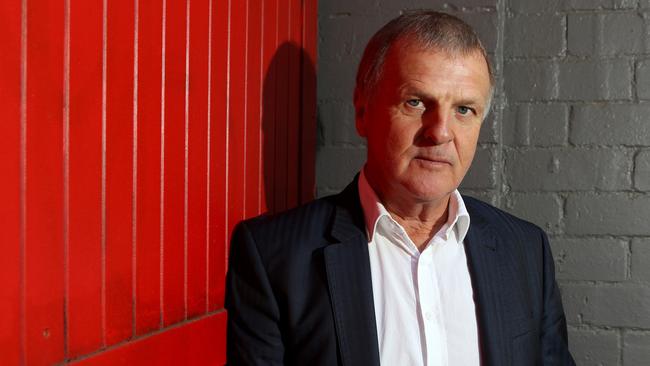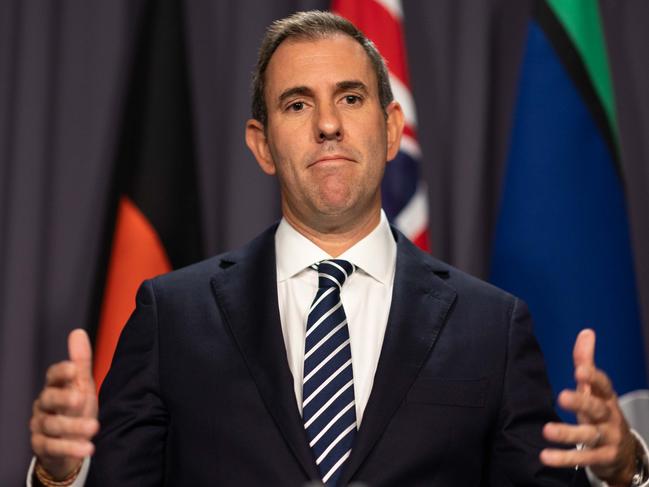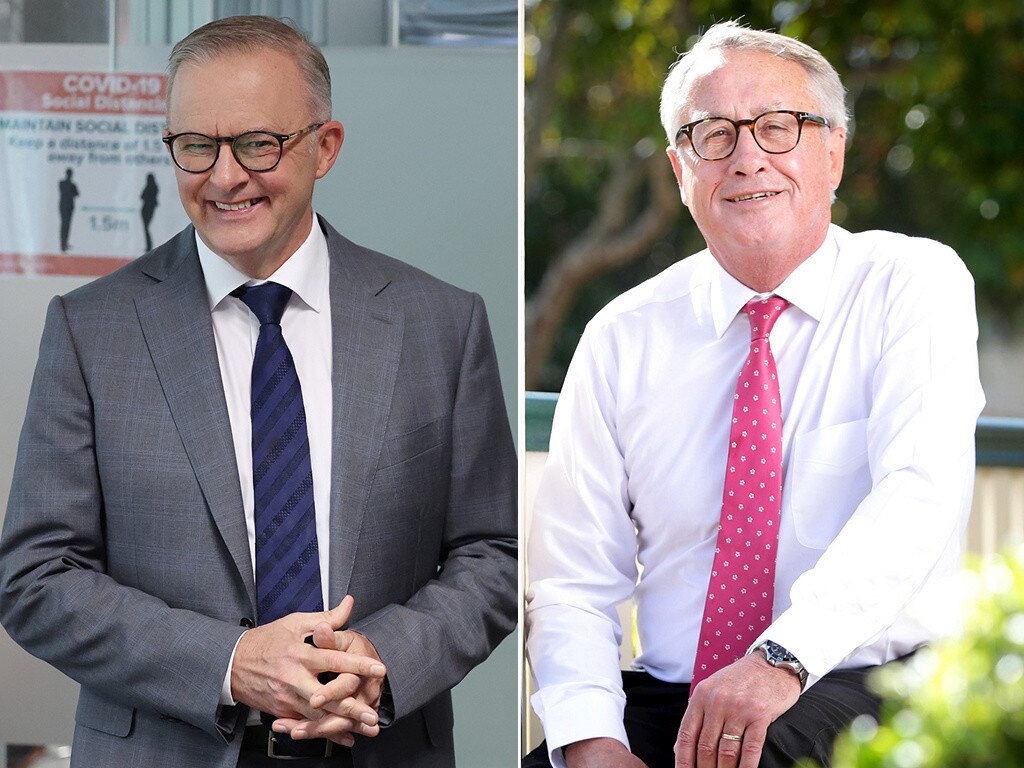Super wisdom from Garry Weaven… but will Anthony Albanese listen?
The godfather of industry super, Garry Weaven, warns arguments around changing rules for retirement risk ‘undermining the whole basis of super’.

The godfather of industry super, Garry Weaven, has warned prolonged arguments around changing the rules for retirement savings risk “undermining the whole basis of super”, and says people will not invest in their retirement if the government creates uncertainty in the sector.
Mr Weaven, who as a founding boss of Industry Fund Services in 1994 and as ACTU assistant secretary in the 1980s was a key player in the development of the industry super movement, said super income in retirement had historically been limited to six times pre-retirement wages.
He said former treasurer Peter Costello had removed limits, but any attempt to reimpose them “can’t just ignore what’s happened before” and would lead to people reinvesting outside the super system.
“I’ve got no problem with it being high, anything in excess (of the cap) you’ve got your options. Invest it over a reasonable time frame in other areas. But it will not have the same tax advantage that some areas do have,” he told The Australian.
“I just think you should say to people that this is the ceiling going forward and if you’re above the ceiling now, you’ve got time to reinvest your money outside of super.”
Mr Weaven cautioned that if the government created uncertainty, it would deter people from investing in their retirement.

“In the end, it is their (savers’) money. I mean, they’re the ones who worked for it and contributed. They want the maximum return so that they can enjoy a good retirement,” he said, adding: “Uncertainty is the worst thing you can do for any policies that affect people’s retirement plans.”
Mr Weaven, who chaired IFM Investors for almost 16 years, said the proposal to legislate an objective for superannuation, as outlined by Jim Chalmers on Monday, was a good move but warned Labor had left itself exposed over a debate on limits.
The Association of Superannuation Funds of Australia has backed a call to wind back tax concessions on super balances above $5m.
The Treasurer, who has been hesitant to lock in support for a limit, in a speech on Monday warned that super tax concessions did not look “sustainable” in the long term. On Wednesday, he floated a $3m limit.
“Jim Chalmers has made a bit of a political mistake by letting it swing in the breeze,” Mr Weaven said. “For as long as that is out there, his political opponents are going to attempt to exaggerate it and jump all over it.”
Mr Weaven’s comments come as the Coalition gears up to make superannuation a clear battle line to take into the next election.
Deputy Liberal leader Sussan Ley will sketch out an expanded policy proposal to give women more access to their retirement savings to buy a first home and address the gender equity gap.
In a speech to a Young Women Liberals conference in Perth – seen by The Australian and to be delivered on Friday night – Ms Ley will say: “We will fight Labor’s (super) changes tooth and nail, but we will also do more work to see how we can better empower women so that in middle and elderly age they do not become vulnerable. What if women were able to access their super to help purchase an asset – a home – that would set them up for the rest of their lives?
“Imagine how many women would be economically empowered, how many would be able to secure their financial independence for life, if we took an expanded version of the last election’s super homebuyer scheme to the next one.”
The super homebuyer scheme would have allowed people to withdraw up to 40 per cent from their retirement savings, up to a maximum of $50,000, to help with the purchase of their first home. Participants must return the amount withdrawn back into their super, plus or minus any capital gain or loss, when they sell the property.
The former government released the proposal only a week before last year’s election, and it has remained part of the Coalition’s policy platform.
Former Treasury secretary Bernie Fraser this week threw his weight behind giving some access to super to help people achieve the dream of home ownership, saying owning your own home was a key part to achieving a “dignified retirement” as set out in the government’s proposed objective for super.
Peter Dutton on Thursday ramped up pressure on the government’s “broken promise” to not fiddle with super tax concessions, saying the Coalition would seek to “block it in the first instance”. Dr Chalmers shot back, taking aim at the Coalition’s “hypocritical hyperventilating”, referring to when Scott Morrison as treasurer introduced a raft of changes to super tax concessions that at the time recouped $3.2bn over the forward estimates to the budget bottom line.
The Treasurer, who travelled to India on Thursday to attend a G20 meeting, in a statement said: “I call on them to explain the difference between what they did in office and what they are railing against now.”
Financial Services Minister Stephen Jones in a speech to the Self Managed Super Fund Association said the Albanese government was “not trying to revolutionise the system”, but put the need to curtail super tax concessions in the context of budget repair.
“With the budget under increased pressure to meet the costs of essential services like healthcare, aged care and the NDIS, we need to consider reforms that put all elements on a more sustainable basis,” he said.
Self-managed super funds represent about 90 per cent of funds with balances of more than $2m, according to the Grattan Institute, making them the most exposed to potential changes aimed at clawing back tax concessions.
“It seems to me that many people will be able to have a very dignified retirement well into the future with a balance that is significantly lower than $1m,” Mr Jones said.
Whether there could be increased taxes on super announced in the May budget remains an open question and Mr Jones said “there will be a time and a place to consider how we might sensibly transition so that it minimises unnecessary disruption”.
“But it is time to have the discussion. No public policy can or should be ‘set and forget,” he said.
John Maroney, chief executive of the Self Managed Super Fund Association, said he did not support the idea of a “hard cap” that could force savers to sell off some of their assets to meet a new balance limit. He pointed to many SMSF members who owned business property through their funds, or assets such as regional shopping centres or farms, and who would be materially worse off were they forced to divest.
“We would hope that they stick to their election promise and not make any changes,” he said.







To join the conversation, please log in. Don't have an account? Register
Join the conversation, you are commenting as Logout